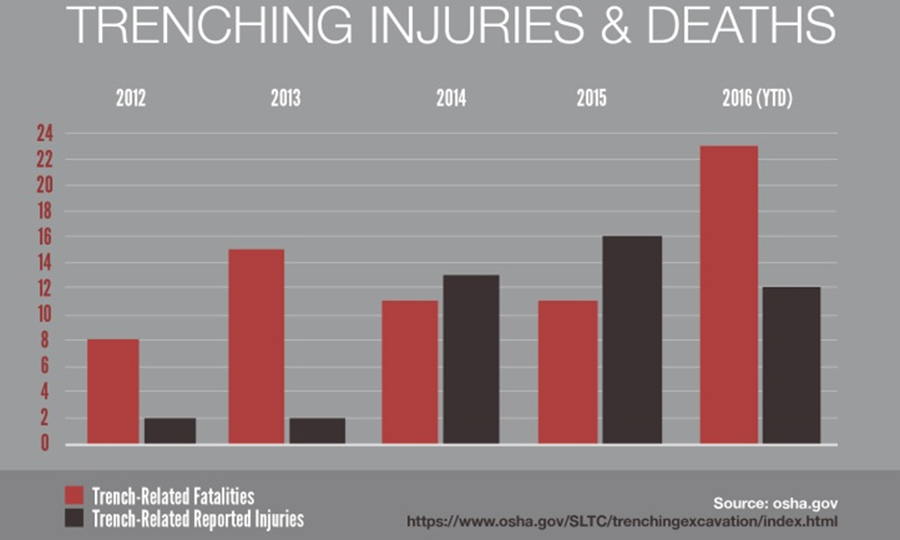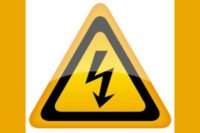Ohio worker's death highlights grim statistic
Trench collapse fatalities have more than doubled in last year

The death of a worker in a trench collapse in Ohio in June was, unfortunately, far from an isolated incident. The 33-year-old was one of 23 workers killed in 2016 – an alarming increase in trench-related fatalities since 2015. Twelve other workers were injured in trench cave-ins.
"There is no excuse"
"Trench deaths have more than doubled nationwide since last year - an alarming and unacceptable trend that must be halted," said Dr. David Michaels, assistant secretary of labor for the Occupational Safety and Health Administration. "There is no excuse. These fatalities are completely preventable by complying with OSHA standards that every construction contractor should know."
Two near misses before fatal accident
In the Ohio tragedy, the walls of a 12’ trench walls collapsed as the employee was digging soil out it, burying him in thousands of pounds of dirt. It was hours before rescue workers were able to recover his body. The man was part of a crew installing a sewer line at a residential home under construction; OSHA's investigation found that earlier that same day, a portion of the trench had collapsed and the worker was able to escape.
It was not his only near-miss. About a month earlier, at another site, the same worker was involved in a trench collapse. Trench cave-in protection was not provided there, either -- leading OSHA to open a separate investigation.
KRW Plumbing LLC was cited for two willful and two serious safety violations including not providing trench cave-in protection for its employees. Proposed penalties total $274,359.
Trench collapses are rarely survivable. One cubic yard of soil can weigh up to 3,000 lbs. - the weight of a small automobile - giving a worker in a trench little chance of survival when walls of soil collapse.
How to save a life
"This man's life could have been saved by following OSHA's safety standards that require cave-in protection in a trench more than 5-feet deep," said Ken Montgomery, OSHA's area director in Cincinnati. "Excavating companies need to re-examine their safety procedures to ensure they are taking all available precautions - including installing trench boxes, shoring and other means to prevent unexpected shifts in the soil that can cause walls to collapse."
OSHA found KRW Plumbing:
- Did not provide trench cave-in protection.
- Failed to protect workers from excavated material failing or rolling into a trench or failing from inside the trench walls.
- Failed to trained workers in recognizing trench hazards.
OSHA has a national emphasis program on trenching and excavations. Trenching standards require protective systems on trenches deeper than 5 feet, and soil and other materials kept at least two feet from the edge of trench.
Looking for a reprint of this article?
From high-res PDFs to custom plaques, order your copy today!






